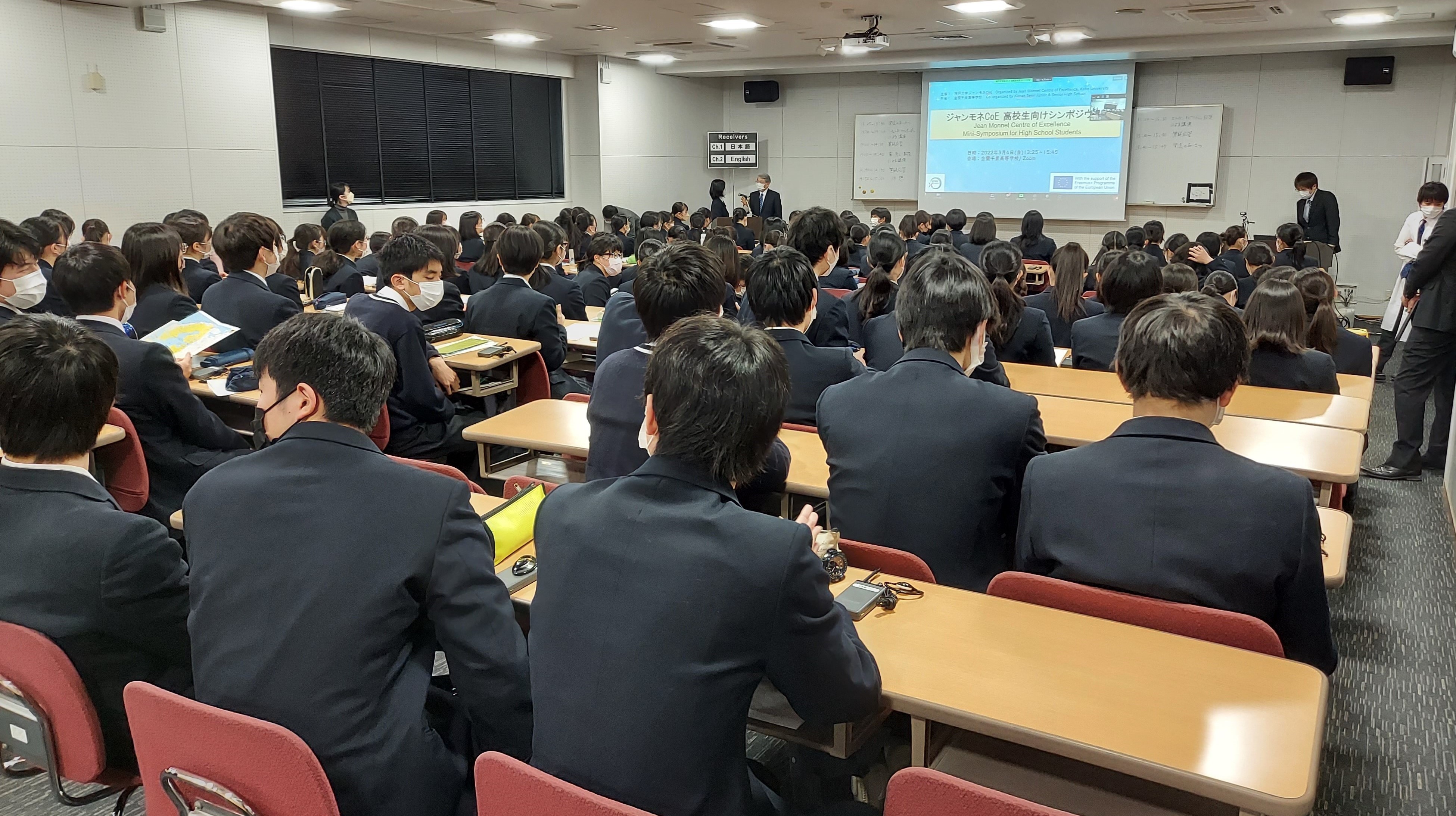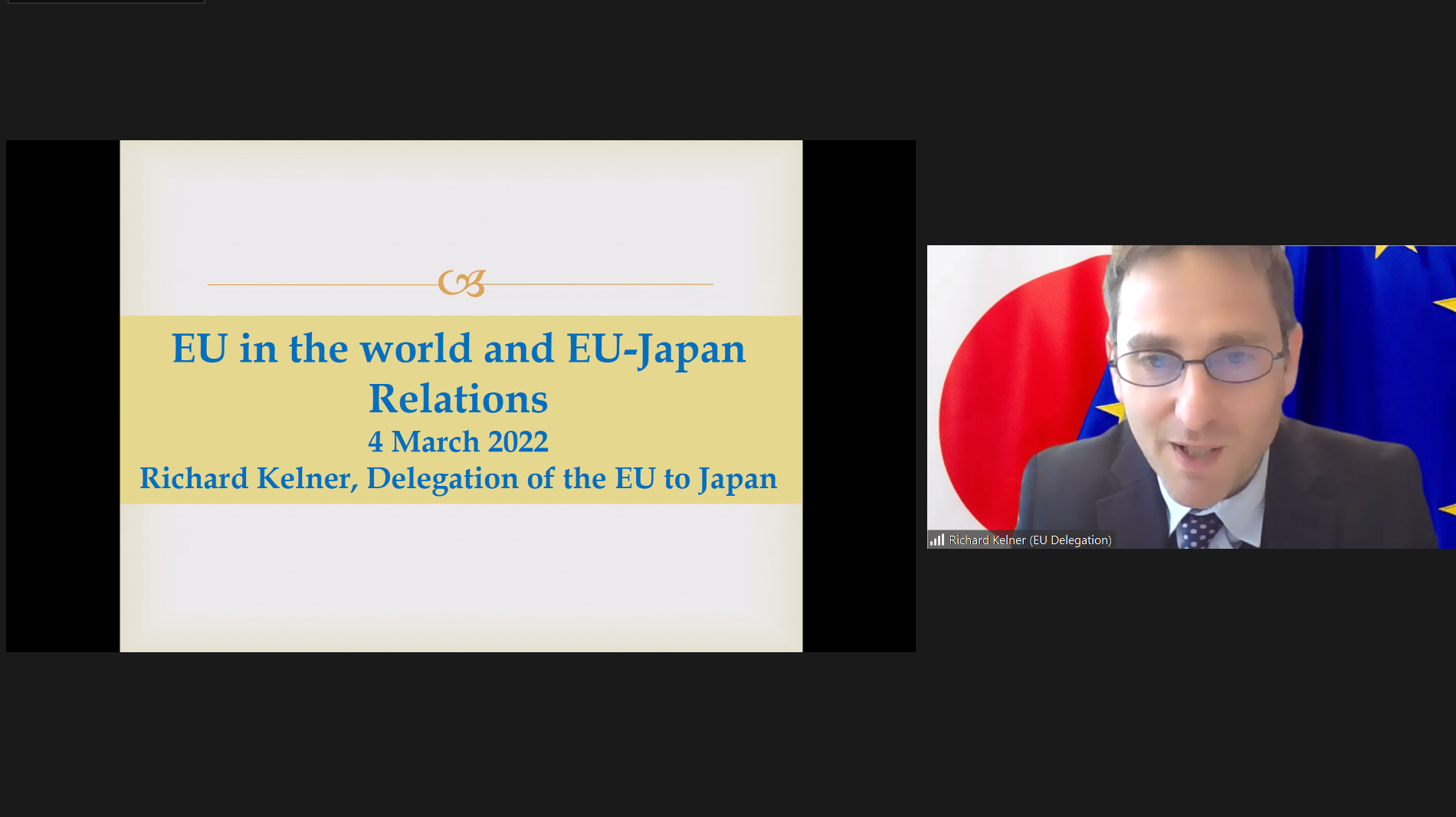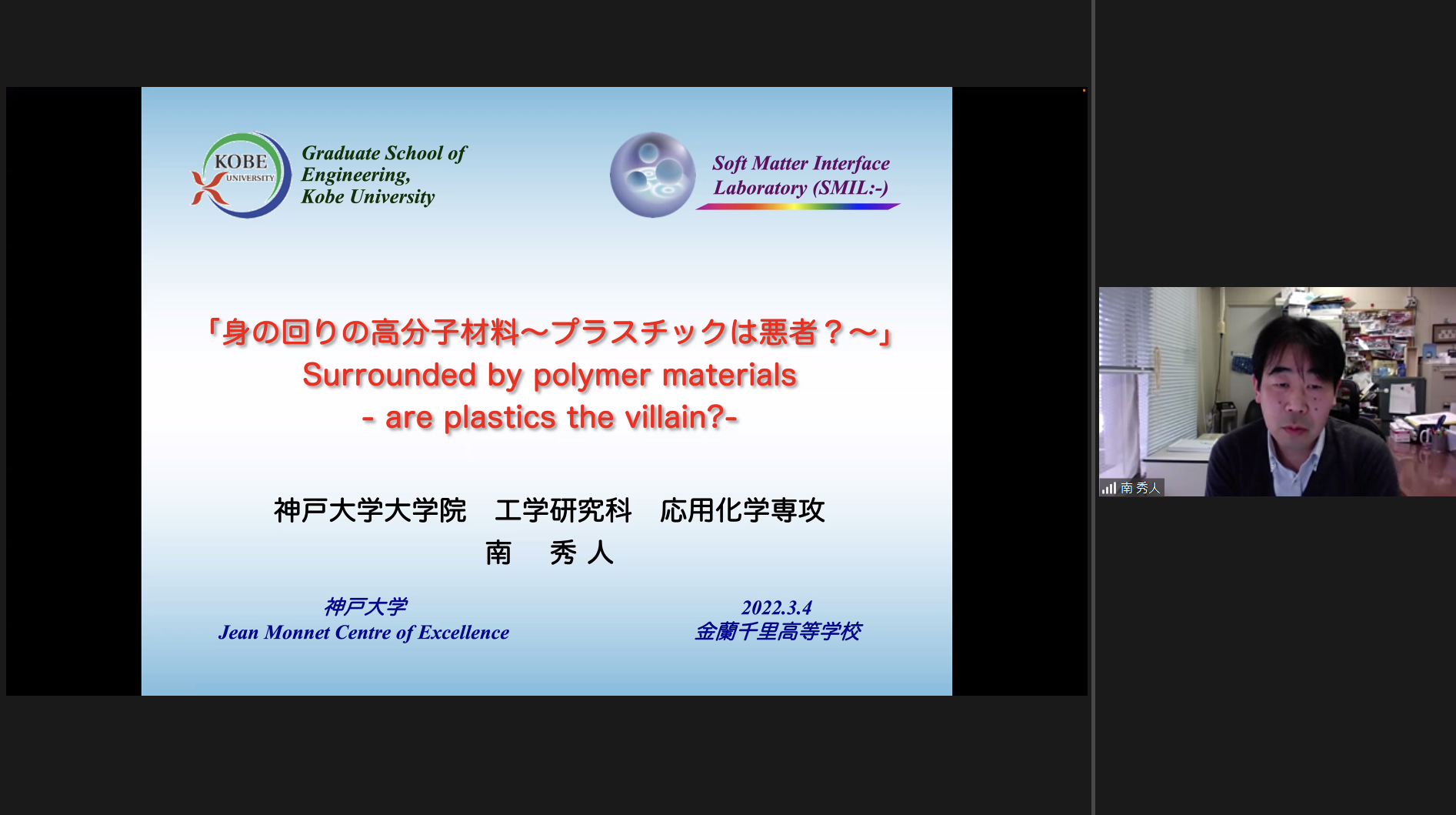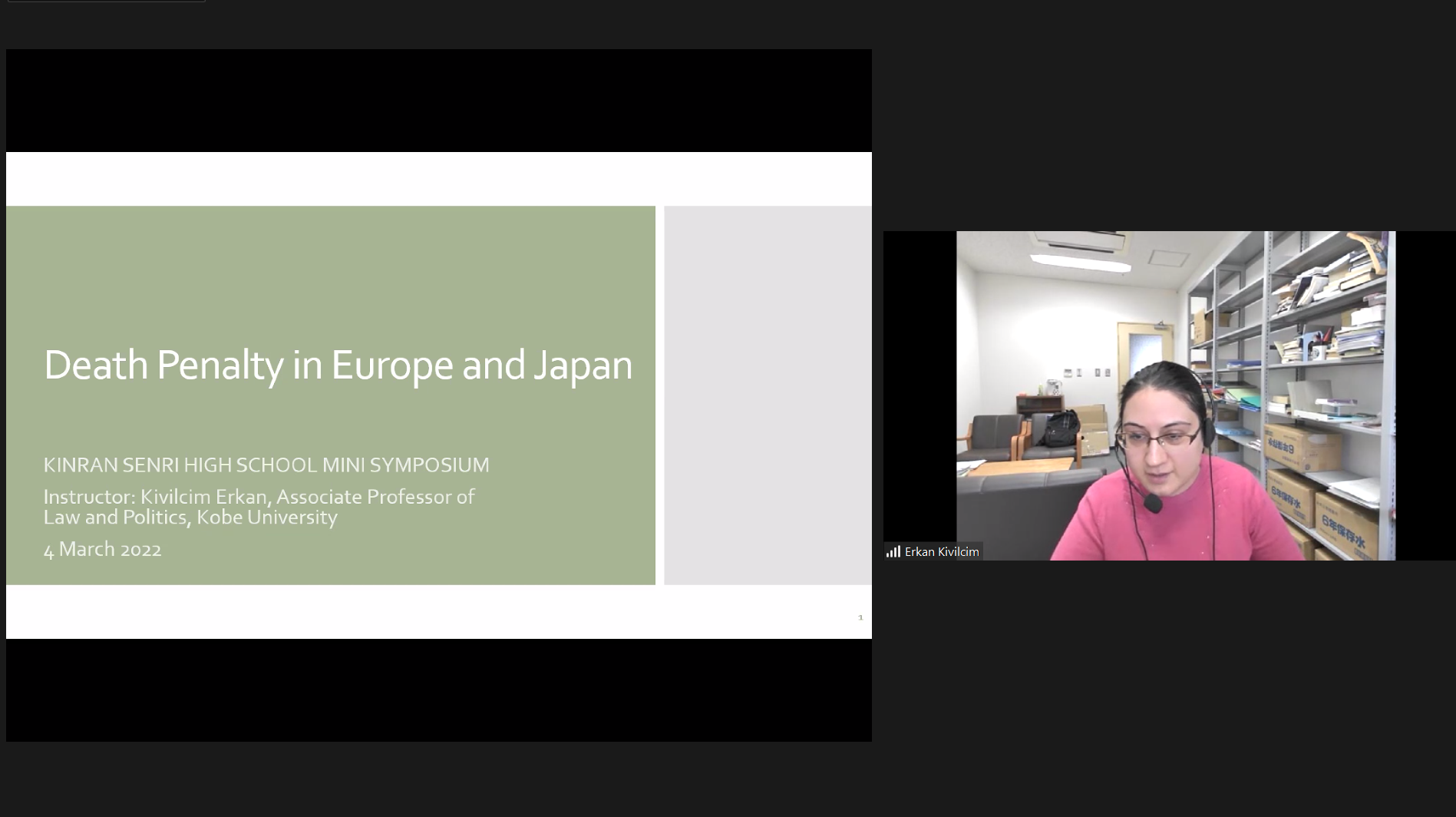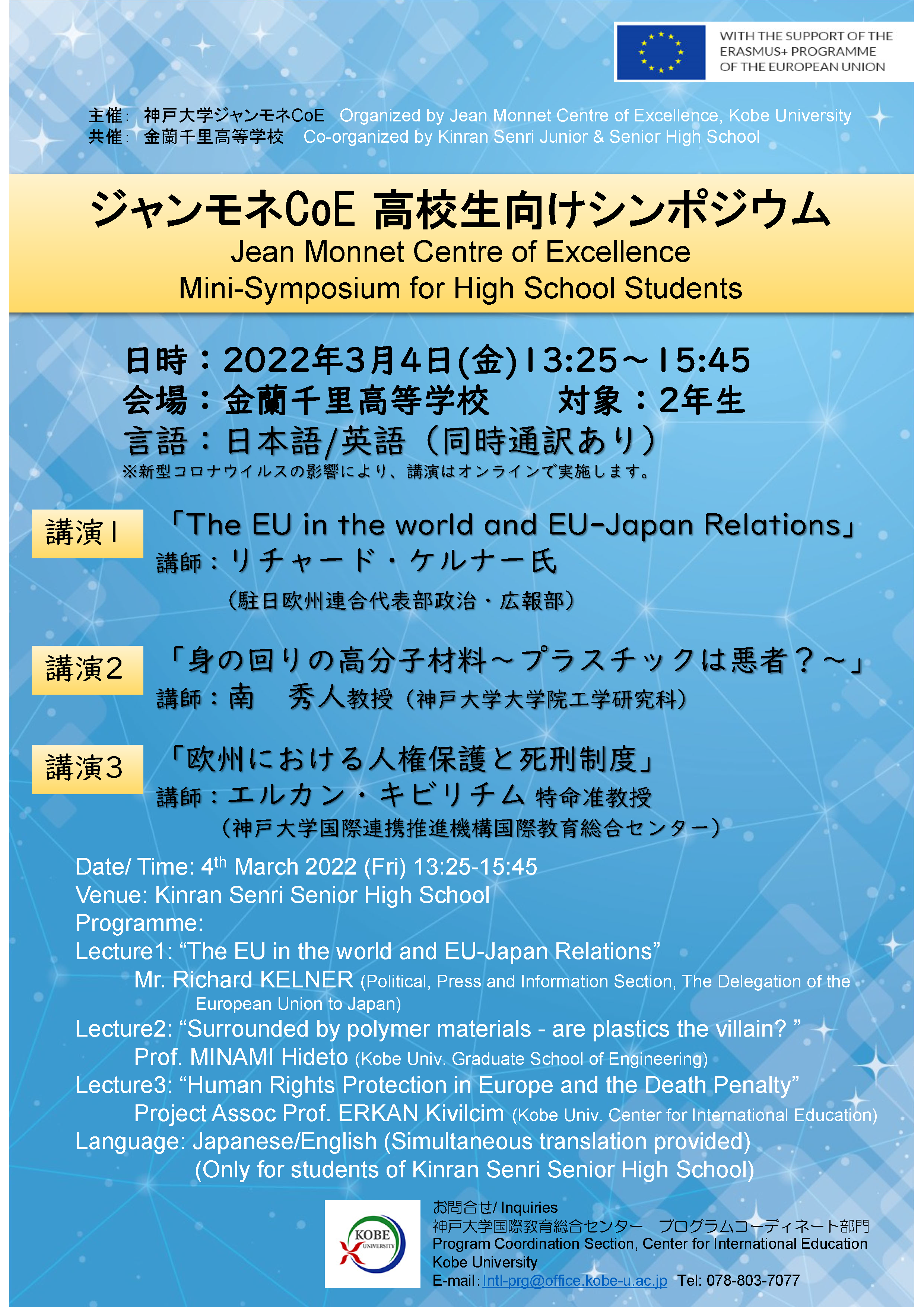Mini symposium for Kinran Senri Senior High School was held on 4 March, 2022
Kobe University Jean-Monnet CoE held a mini-symposium on Friday, 4 March, 2022
for 173 second-year students of Kinran Senri Senior High School in Osaka.
At the mini-symposium, after the opening remarks by Mr. Ken TSUJIMOTO, Board Chairman of the school,
Mr. Richard Kelner, the Delegation of the European Union to Japan,
Professor MINAMI Hideto, Graduate School of Engineering, Kobe University,
Dr. ERKAN Kivilcim, the Institute for Promoting International Partnerships, Kobe University gave their online lectures.
As all the lectures were simultaneously interpreted, students could listen to the lectures in English,
and deepen their understanding by the simultaneous translation, too.
Mr. Kelner gave a lecture "The EU in the World and EU-Japan Relations" in English.
First, he explained what is the EU, and mentioned under its motto of unity in diversity the EU plays an important role as a global actor,
for example, in solving human rights and climate change problems. He finally recommends students to study in the EU
and to attend EU related events in Japan.
Professor Minami gave a lecture "Surrounded by polymer materials - are plastics the villain?" in Japanese.
He firstly mentioned we are surrounded by polymer materials like PET bottles, styrene foam and chemical fibers,
and our lives are enriched by them used in various fields like medical treatment and information technologies.
Although they say micro plastics pollute the environment, he emphasized that, instead of dismissing plastic
as the villain, plastic wastes should be used under the stricter management,
because polymeric materials have achieved a remarkable success,
and because the first whistling paper published in Science in 2016 was later retracted.
Finally, Dr. Erkan gave a lecture "Human Rights Protection in Europe and the Death Penalty" in English.
She mentioned arguments for abolishing the death penalty in Europe go back in the middle of 18th century,
although the death penalty was applied to wide-range of crimes at that time. Protocol No.6 of
the European Convention on Human Rights in 1985 stipulates abolition of the death penalty during peacetime,
and it is a condition for the EU membership now. Today more than two thirds of the states
in the world abolish the death penalty, although 56 states including Japan and the US keep it.
She emphasised, however, that abolition of the death penalty is now discussed in Japan,
and the Japan Federation of Bar Associations submitted a request letter
calling for the abolition of death penalty to the government.
After each lecture, students raised challenging questions thanks to a preliminary EU-related study
given by the Board Chairman Tsujimoto. At the end of symposium, a high school student gave thanks words
to the lecturers, and Professor Yoshii made closing remarks.
The questionnaire shows that more than 97% of the participants felt that the lectures were satisfactory
and 92% may utilize this experience when they pursue their study.
